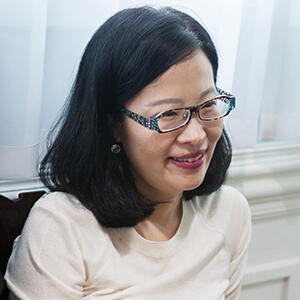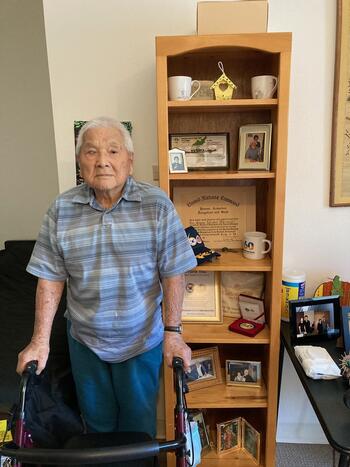The six Asian countries examined in the new book Shifting Gears in Innovation Policy — China, India, Japan, Singapore, South Korea, and Taiwan — have achieved high economic growth in many industrial sectors, but the catch-up phase of their growth is over or ending. These countries can no longer rely on importing or imitating new technologies from abroad. Rather, they must develop their own innovations to maintain growth. The traditional industrial policy tools they often used to advance “innovation” by selecting promising industries and diverting resources to them are no longer effective. Indeed, governments in Asia have recently put forward new policies, such as China’s push for mass entrepreneurship and innovation. It is at this juncture that the authors of Shifting Gears reassess Asia’s innovation and focus on national strategies and regional cluster policies that can promote indigenous entrepreneurship and innovation in the larger Asia-Pacific. In this virtual book launch, contributing chapter authors join Yong Suk Lee to discuss their findings.
SPEAKERS
Edison Tse is an Associate Professor in the Department of Management Science & Engineering at Stanford University. He is also the Director of Asia Center of Management Science and Engineering, which has the charter of conducting research on the growth of emerging economy in Asia, with a special focus in China, Korea and India. In 1973, he received the prestigious Donald Eckman Award from the American Automatic Control Council in recognition of his outstanding contribution in the field of Automatic Control. In 2003, he received the Golden Nugget Award from General Motors R & D and Planning. In 2008, he received the Dean’s Award for Industry Education Innovation from School of Engineering, Stanford University. He had served as an Associate Editor of the IEEE Transactions of Automatic Control, and a co-editor of the Journal of Economic Dynamics and Control, which he co-founded. Since 2003, he dedicated his research effort in dynamic entrepreneurial strategy and transformation of Chinese production economy to innovation economy. He wrote a book in Chinese entitled “源创新”on this theory and published in China in 2012. A second edition of this book, with new chapters incorporating some experiences of practicing the theory in China, was published in 2016 by China CITIC Press with a new title “重新定义创新(Redefine Innovation)”. He is now working on the extension of this theory to developing countries. His main thesis is that innovation is cultural dependent. Successful innovation in a developing country must be synergistic to its culture, its political, social and economic environment. Professor Edison Tse received his BS, MS, and Ph.D. in Electrical Engineering from Massachusetts Institute of Technology.
Dinsha Mistree is a Lecturer and Research Fellow in the Rule of Law Program at Stanford Law School. In his research, he examines how formal legal systems sometimes can sometimes stimulate economic development, while at other times these same systems can hold back development. His work considers incentives for innovation and entrepreneurship, meritocracy in public administration and education, and drivers of economic development more broadly. Much of Dr. Mistree’s research focuses on India and other South Asian countries. His work has appeared or is forthcoming at
Social Science and Medicine,
Stanford Law Review, and
Cambridge University Press. Dr. Mistree holds a PhD and an MA in Politics from Princeton University and an SM in Political Science from MIT.
Michelle F. Hsieh is an Associate Research Fellow in the Institute of Sociology, Academia Sinica, Taipei, Taiwan. She received her PhD (in Sociology) from McGill University, Montreal, Canada, and was a Shorenstein Postdoctoral Fellow at the Shorenstein Asia-Pacific Research Center at Stanford University. Her research interests include economic sociology, sociology of development, comparative political economy, and East Asian societies. Her ongoing research explores the variations and consequences of industrial upgrading among the East Asian latecomers. She has done empirical analysis of the different configurations of the state-society linkages for innovation through comparative industry studies on Taiwan and South Korea. Her investigations focus on how technology learning and adaptation take place in a decentralized system of SME network production and the institutional arrangements that can facilitate or hinder coordination and collaboration. Other research interests are the origins of the East Asian developmental state and the connection between technological development and Cold War geopolitics in the latter half of the twentieth century.
Wonjoon Kim is the Head of the Graduate School of Innovation and Entrepreneurship, a Professor at the School of Business and Technology Management, KAIST. He is also the Director of KAIST Center for Innovation Strategy and Policy. He has been conducting and publishing numerous researches on the strategic management of innovation of firms, industry, and governments centering on emerging innovation paradigms. His current research interest also covers the changing nature of innovation, including AI and industrial and social change, the convergence of technology as well as the changing nature of the process of entrepreneurship. Currently, he is the President of Asia Innovation and Entrepreneurship Association (AIEA), Organizing Committee Chair for the AIEA-NBER Conference and a Vice President of the Korean Society for Innovation Management and Economics. He is also serving as the Editor of the Journal of Technology Innovation, and an Editorial Board Member for several journals on innovation such as Technovation, Innovation Studies. Before he joined KAIST, he has been an Adjunct-Assistant Professor at the Department of Economics, NYU as and a Research Fellow at the Yale School of Management. He holds a Ph.D. in Economics of Innovation including Science and Technology Policy from Seoul National University.
MODERATOR
Yong Suk Lee, SK Center Fellow at the Freeman Spogli Institute for International Studies and Deputy Director of the Korea Program at the Walter H. Shorenstein Asia-Pacific Research Center at Stanford University.













![[Top left] Gi-Wook Shin; [top right] Roberta Cohen; [bottom left] Tomás Ojea Quintana; [bottom right] Joon Oh](https://fsi9-prod.s3.us-west-1.amazonaws.com/s3fs-public/styles/727x409/public/hero/korea_un_north_korea_human_rights_hero.png?h=c4d9845d&itok=HNhbd4Ot)


 Brandon Cho’s great-grandparents, Tai Young Whang and Bong Soon Whang, Seoul; photo courtesy Brandon Cho
Brandon Cho’s great-grandparents, Tai Young Whang and Bong Soon Whang, Seoul; photo courtesy Brandon Cho






